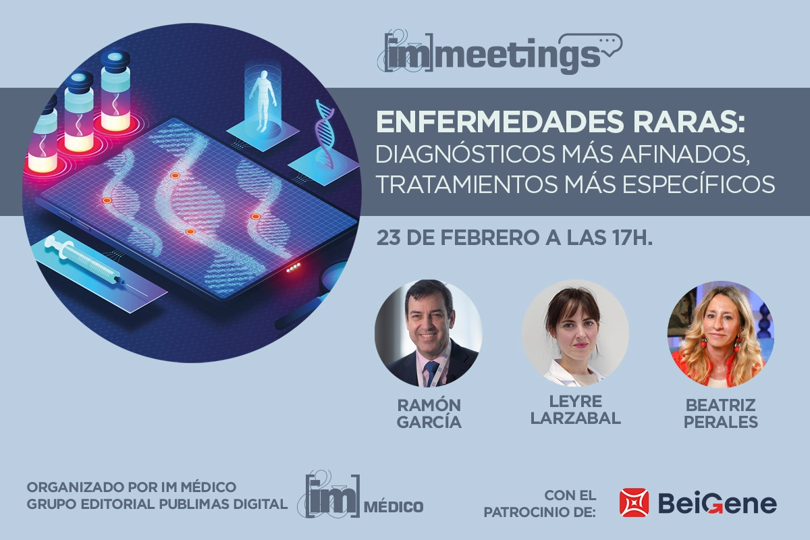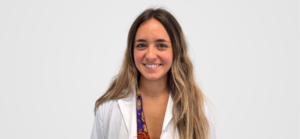Yesterday, February 23, we participated in the IMMeeting organized by IMMédico magazine to talk about rare diseases, their diagnosis and treatment, together with Beatriz Perales, member of the Spanish Association of Orphan and Ultra-Orphan Drug Laboratories (AELMHU) and Ramón García, hematologist and head of the molecular biology laboratory at the University Hospital of Salamanca.
Rare diseases are diseases of low prevalence in terms of the total population, but which already affect more than 3 million people in our country. Our colleague Leyre Larzabal explained how the term rare diseases groups together more than 7000 diseases that, in general, present a high clinical complexity since many of the patient's symptoms can be confused with those of a more frequent pathology, which makes diagnosis and treatment difficult.
The latest estimates about the origin of these diseases highlight that at least 80% have a genetic origin and in these cases, Leyre highlighted the advantages of carrying out a genetic study for a better diagnosis and the correct identification of the genetic variants that cause them and that can be transmitted to the offspring.
AELMHU works in the research, development and commercialization of innovative therapies for rare diseases, with the aim of giving visibility to the special characteristics of these diseases and the value of these orphan drugs in the treatment of different pathologies.
Beatriz Perales stressed the importance of R&D so that more and more treatments are available to patients, since, to date, only 5% of rare diseases have it, with a large number of orphan drugs without funding, and an average waiting time for approval of 34 months.
It is estimated that a patient can take between 4-10 years to be diagnosed, a setback that Ramón García added to the difficulties in accessing a genetic diagnosis and the existing obstacles in accessing the appropriate treatments.
You can watch the complete IMMeeting at the following link:





